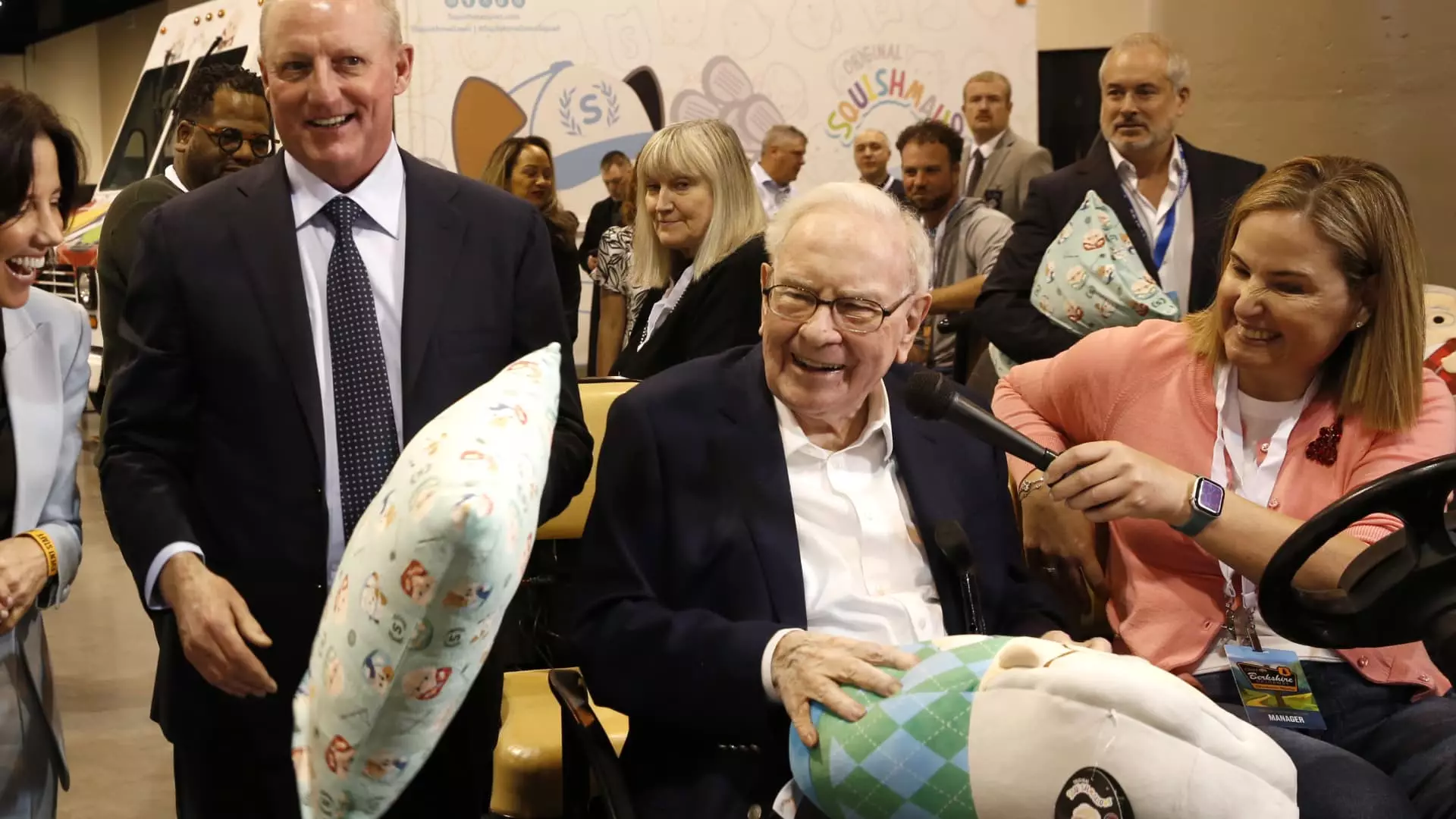During a momentous Saturday in Omaha, the heralded investor and financial sage Warren Buffett dropped a bombshell that reverberated across the financial community: he would entrust the Berkshire Hathaway helm to Greg Abel, his longtime successor, by year’s end. At a ripe 94 years old, Buffett’s sudden announcement caught even the most ardent supporters off guard. The aura surrounding Buffett has always been that of eternal invincibility; to think of him relinquishing control is like envisioning the sun going down in perpetual daylight. However, this unforeseen transition symbolizes not just a change in leadership but also a philosophical evolution in corporate governance at one of the world’s largest conglomerates.
Legacy of a Visionary
Entering the business landscape in 1965, Buffett transformed a struggling textile mill into a behemoth valued at nearly $1.2 trillion. His uncanny ability to pinpoint investment opportunities and his steadfast belief in value investing have become legendary. As he prepares for his exit, maintaining that iconic legacy is crucial for both him and Berkshire Hathaway’s zealous shareholders. One can’t help but wonder: will Abel be able to uphold the standards that Buffett set, or will the shift lead to a divergence in Berkshire’s time-honored strategies?
It isn’t merely a question of who will take charge; it’s about preserving a philosophy that has, for decades, delivered robust shareholder returns. Buffett’s heartfelt endorsement of Abel indicates a seamless transition and enough confidence for shareholders to rest assured. Remarkably, Buffett declared he wouldn’t divest any shares post-transition, rooting his own faith in Abel’s capabilities.
The New Blood: Greg Abel’s Impressive Portfolio
Greg Abel isn’t just anointed heir apparent; he brings considerable heft to the role with a commendable 25-year tenure at Berkshire. He joined the firm during its acquisition of MidAmerican Energy, where he rose through the ranks to execute his role as CEO. Demonstrating a more hands-on managerial style compared to Buffett’s more laissez-faire approach, Abel’s dedication may unlock untapped potential within Berkshire’s extensive portfolio of over 60 subsidiaries.
Abel, who hails from Canada, has shaped a diversified energy business from its geothermal roots at CalEnergy. His past experiences combine traditional investment philosophies with modern operational agility, marking a potential pivot in how Berkshire can approach new challenges. But is that pivot necessary? Should a company so deeply entrenched in its established principles really gamble on modernization? Buffett seems to think so, advocating that Abel’s operational vigor can yield even finer results.
The Imminent Promise of Capital Allocation
Perhaps one of the most anticipated areas of continuity during this transition lies in capital allocation. With an eye-watering cash reserve amounting to $347 billion, how Abel wields this economic heft will be critical. Buffett’s longstanding patient value investing methodology may serve as a well-ingrained compass for Abel, but the challenge resides in navigating an increasingly volatile global economy.
Buffett articulated that the approach toward capital allocations won’t be a radical departure, alluding to a carefully curated strategy. Still, what remains unclear is how Abel will adapt this philosophy to new sectors and challenges. In this evolving landscape, sheer loyalty to established practices might be a double-edged sword. Are we merely reproducing a model that served us well in the past, or are we prepared to innovate for the future?
Buffett’s Surprising Alliance with Abel
The transition isn’t merely a succession; it’s an endorsement from a revered leader to a worthy successor. Buffett’s declaration that some board members were in the dark about the change adds a layer of intrigue to this corporate drama. This behind-the-scenes dynamic might raise eyebrows but also speaks volumes about Buffett’s belief in Abel’s capabilities.
The financial world is buzzing with speculation about how Abel will reformulate Berkshire’s future vision. Observers eagerly await a clarification on Buffett’s potential role as a guiding figure for Abel, akin to Charlie Munger’s longstanding partnership with Buffett. Fidelity in maintaining Berkshire’s culture is fundamental, and transitions often breed uncertainty. Yet, with a standing ovation signaling the crowd’s approval, Abel embarks on this venture under a scrutinous yet hopeful light—will he maintain the traditions while ushering in a new era?
A New Era Dawns
In the end, this isn’t just a corporate shift; it’s a cultural transition reflective of broader themes in the business world. As institutions evolve, they face the twin pressures of tradition and modernity—a delicate balance that defines success in this fast-paced economy. The question looms larger than mere succession: can Greg Abel forge his own identity while staying true to Buffett’s visionary teachings? As shareholders await the dawn of a new era, one cannot help but harbor hope tempered with a sense of trepidation, for good is the enemy of great.

